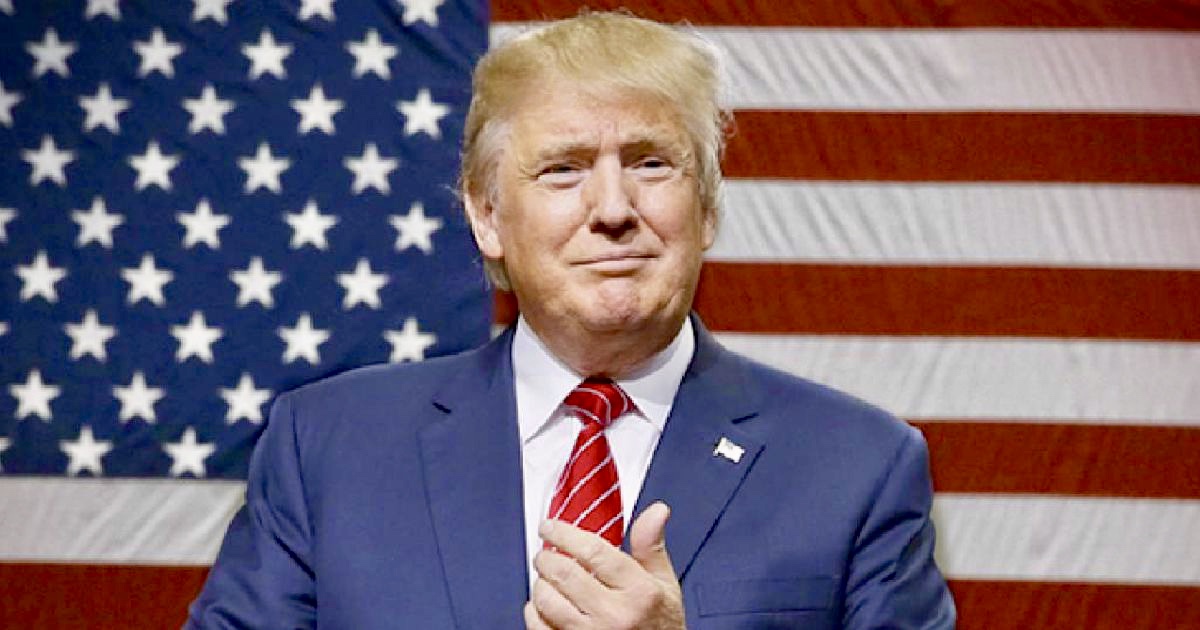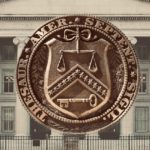By Hans von Spakovsky and Greg Walsh
Long before discussions of impeachment became commonplace, a means of denying President-elect Donald Trump the White House was floated and circulated among liberal groups.
They formed a national alliance shortly after the 2016 election designed to manipulate the Electoral College by persuading and pressuring electors not to vote for Trump when members of the Electoral College met to cast their votes on Dec. 19, 2016, but to vote for an alternative candidate.
As we all know, they were not successful.
But what happened to the small handful of electors who broke their pledges? There were seven nationwide, including four in the state of Washington.
The liberal Left continue to push their radical agenda against American values. The good news is there is a solution. Find out more >>
Are there any consequences when an elector changes his vote? Can states punish faithless electors? According to a recent decision by the Washington state Supreme Court, the answer is “yes.”
In the Matter of Levi Guerra, Esther V. John, and Peter B. Chiafalo, the state Supreme Court explained that some electors nationwide—including the defendants in this case—announced that “they would not vote for either [Hillary] Clinton or Trump and would instead attempt to prevent Trump from receiving the minimum number of Electoral College votes required to be president.”
They apparently hoped that would throw the election into the hands of the House of Representatives.
When the Electoral College met, three of the Washington state electors who had pledged to vote for Hillary Clinton instead cast their votes for retired Gen. Colin Powell and one for a leader of the Yankton Sioux Nation, Faith Spotted Eagle.
As a result, they were fined $1,000 each under a state statute for failing to vote for the nominee of their political party. Three of the electors appealed a lower court decision against them to the Supreme Court of Washington.
The electors claimed that the state law violated Article 2, Section 1 of the U.S. Constitution (which delineates the process whereby electors convene and cast their ballots), as well as the First and 12th Amendments (providing a right to free speech, including through voting, and amending the process whereby electors cast their ballots, respectively).
They argued that as “presidential electors, they perform a federal function” and that “electors are intended to exercise independent judgment in casting their ballots.”
By imposing a fine, they said, the state was interfering “with a federal function in violation of the Constitution.”
But writing for an 8-1 majority, Chief Justice Barbara Madsen disagreed. Madsen went through a detailed history of the reasons that the delegates at the Constitutional Convention created the Electoral College, noting that the “manner of appointment of electors was left to the states.”
She cited the important fact that “presidential electors were understood to be instruments for expressing the will of those who selected them, not independent agents authorized to exercise their own judgment.”
Madsen discussed a 1934 case raised by the electors interpreting the Federal Corrupt Practices Act, Burroughs v. U.S., in which the U.S. Supreme Court held that electors perform a federal function when they cast their ballots in the Electoral College.
However, they are not officers or agents of the federal government, and the Federal Corrupt Practices Act does not “interfere with the power of a state to appoint electors or the manner in which their appointment” was made. According to the ruling in Burroughs, the federal statute “in no sense invades any exclusive state power.”
Madsen also cited another U.S. Supreme Court case, Ray v. Blair (1952), in which the court held that an Alabama statute requiring electors to pledge their votes to a specific party candidate in primaries was constitutional.
According to Madsen, the Ray case supports the argument that nothing in the Constitution “prohibits a state from imposing certain conditions on electors as a part of the state’s appointment powers, including requiring electors to pledge their votes.”
Furthermore, the 12th Amendment “simply requires the electors to meet at the specified date and time outlined by Congress and to cast two votes for qualified candidates—one for president and one for vice-president.”
That provision does not limit “a state’s authority in adding requirements to presidential electors.” Thus, it is clearly within the power of a state such as Washington “to impose a fine on electors for failing to uphold their pledge, and that fine does not interfere with any federal function outlined in the [12th] Amendment.”
Madsen also rejected the electors’ First Amendment claim.
Electors, she wrote, are “carrying out a state government duty.” Their power to cast a vote in the Electoral College “comes from the State, and the elector has no personal right to that role.”
When they choose to be nominated as electors by their political party, they do so “subject to the rules and limitations that attend the position.” They also have the “ability to step down as electors without penalty” if they do not want to honor their pledge.
Thus, the casting of electoral ballots does not implicate the First Amendment.
There have been faithless electors throughout our history, but their number has been relatively small, and they have never come close to affecting the outcome of a presidential election.
As the Supreme Court of Washington correctly concluded, fining those who break their pledge is constitutional and well within the authority given to state legislatures to appoint electors “in such manner” as they choose.
It is also fully within that same constitutional authority for states, as some do, to provide that faithless electors will be replaced before states certify the votes of their Electoral College electors.






27 comments
casino slots
real money casino games
casino slots gambling
hollywood casino online
viagra online prescription
viagra generic
slot games online
slots online
play online casino real money
online casino games
generic cialis online
cialis generic date
quick cash loans
cash advance online
cash loans
cash loans
personal loans
no credit check loans
viagra for sale
viagra cost
cialis buy
new cialis
cialis 20
cialis generic
cialis to buy
cialis 5 mg
5 mg cialis
generic for cialis
generic for cialis
cialis 5 mg
real casino
real online casino
online casino
free slots
free slots
gambling games
casino games
casino online slots
viagra no prescription
buy viagra
buy viagra
sildenafil online
cheapest generic viagra
viagra pill
tadalafil cost
cialis generic date
cheap tadalafil
tadalafil reviews
casino
casino games win real money
rivers casino
chumba casino
Discount viagra without prescription
Discount viagra without prescription